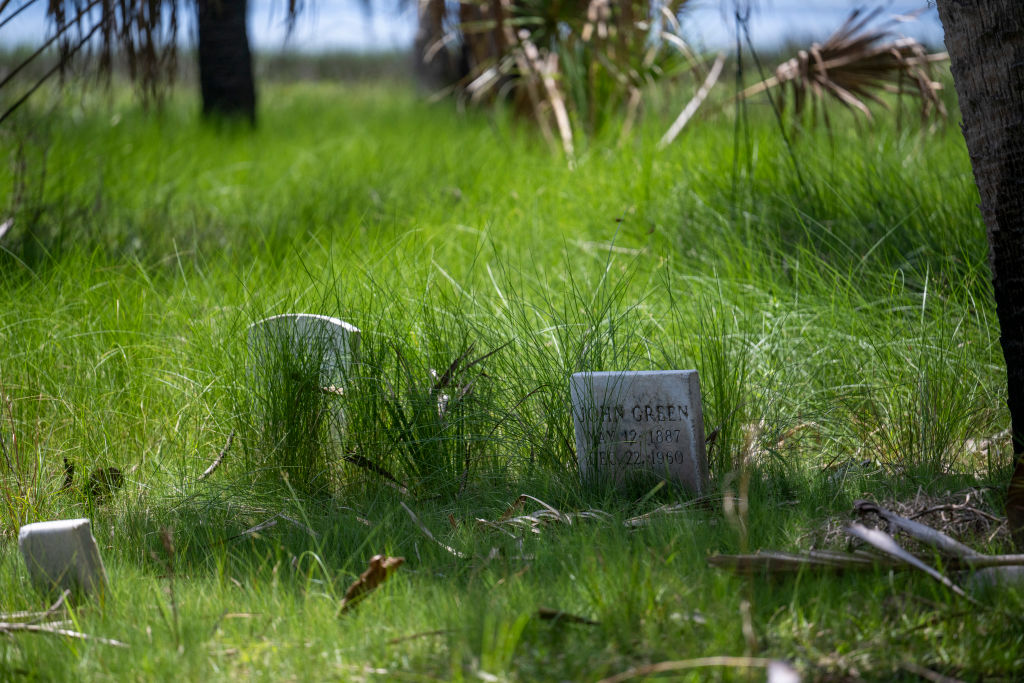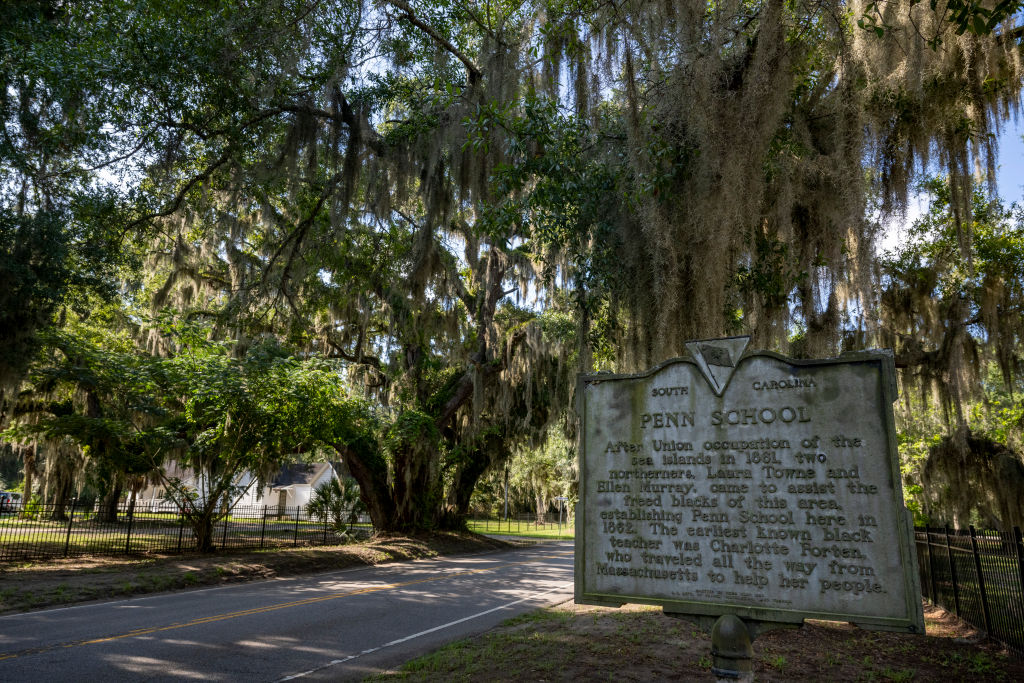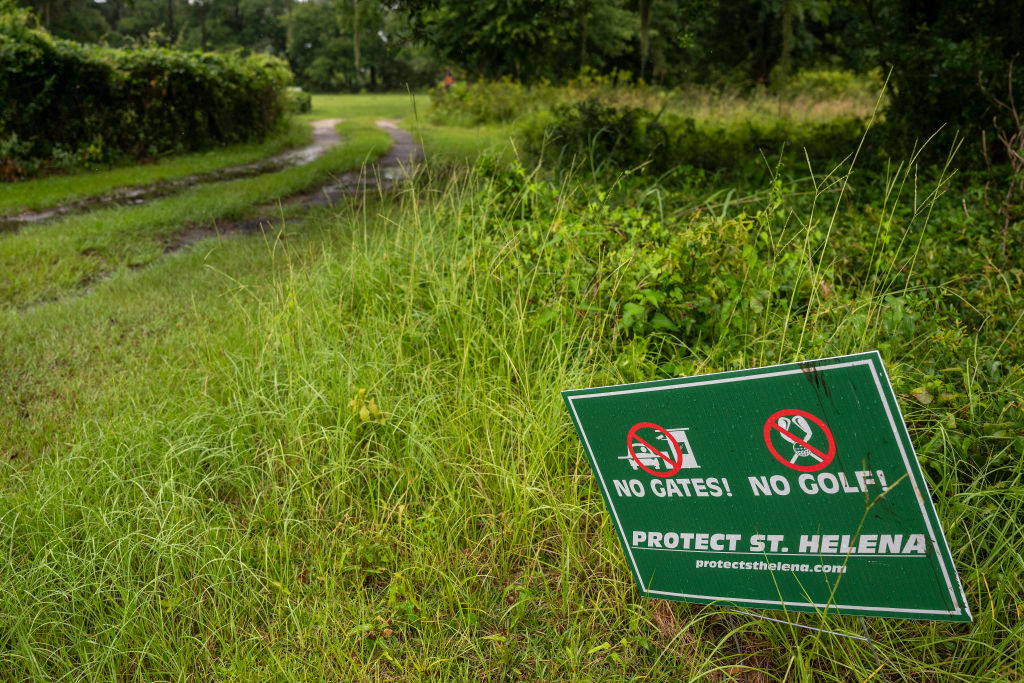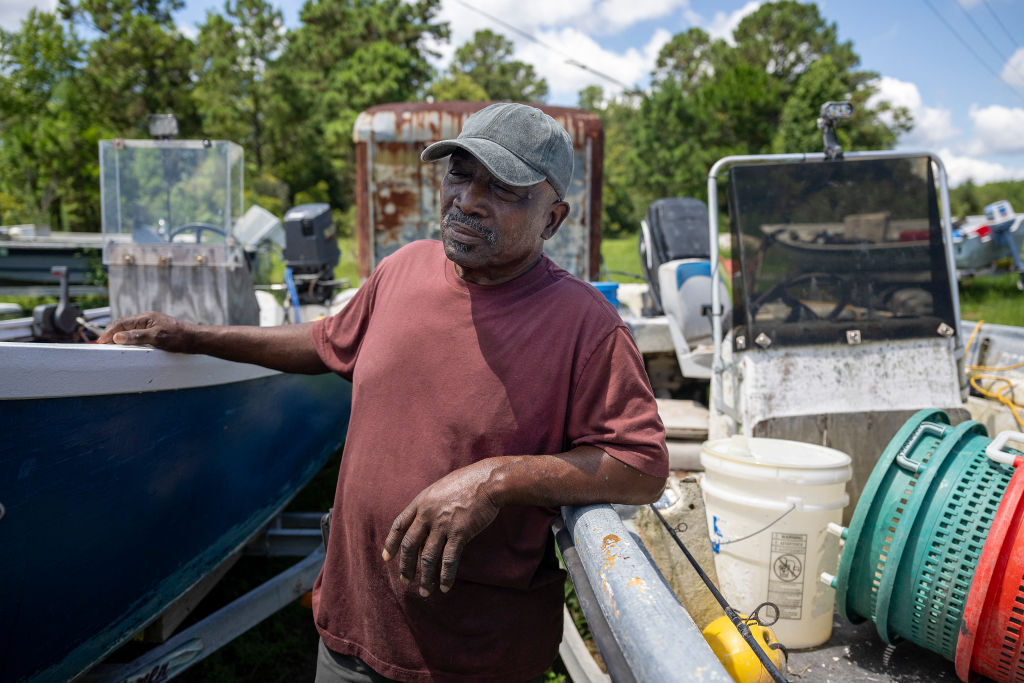
From Jacksonville, North Carolina to Jacksonville, Florida, a community of over one million people identify as Gullah Geechee, one of the oldest Black-indigenous groups in the United States. They’re currently at risk of losing their ancestral homeland.
The 400-mile stretch of the Gullah Geechee corridor is home to the descendants of people who have inhabited the land along the Southeast shoreline and Sea Islands since their enslaved West African ancestors arrived nearly 400 years ago. Overtime, the Gullah Geechee people have preserved their own African traditions, culture and connection to the land. The cultural epicenter of the Gullah Geechee is St. Helena Island, South Carolina, which is outside of Beaufort, South Carolina.

“It’s a very unique community that has its own dialect and maintained a certain type of connection to the nature, the land, and the water,” said Erica Xavier-Beauvior, resiliency manager at the Gullah Geechee Cultural Heritage Corridor and descendent of the ancestral Gullah Geechee lineage. “There is a lot of spirituality that is embedded into this community that isn’t found in mainstream ways of society.”
In 2019, elected Chieftess of the Gullah Geechee Nation Queen Quet, also known as Marquetta Goodwine, spoke to Congress about water pollution, increased storm surges and climate impact to the traditional and sacred coastland of the Gullah Geechee people.
“We knew Gullah Geechee culture would not continue to thrive or survive if we get displaced from the Sea Islands,” Queen Quet said at the congressional hearing.

Increased damage from historically devastating hurricanes and tropical storms have already caused displacement and infrastructure damages for those residing along the corridor. In 2018, Hurricane Florence eviscerated public housing complexes in Wilmington, North Carolina, forcing 2,000 residents to relocate. Places like Charleston, South Carolina experience flooding during high tide at least once a week, compared to once a month in the 1990s.
To make matters more dire, sea levels are actually rising faster in the Southeast, according to NASA. Research reveals that mean sea level acceleration along the Southeast and Gulf coasts has increased more than 10 millimeters every year since 2010, an unprecedented surge five times the amount observed in the same areas during the 20th century. Much of this accelerated rising is attributed to ocean-water expansion from warming, saltiness and circulation known as sterodynamic sea levels.
‘Our stance is options’
With increased flooding and damage from storms, many people within the corridor have been forced to assess their options—commit to restoration of their sacred homeland or relocate entirely.
“Our stance is, you are a sovereign being that knows you belong to the coastline and have the option to leave if you wish,” Xavier-Beauvior said on the organization’s positioning. “I have seen buyouts and collaborations with counties, but when it comes to accepting these offers, we also need to think about what information is provided so that people know what they are giving up.”

While the threat of increased damage looms, public aid and governmental support has intervened through funding and policy.
In 2023, Georgia Senator Jon Ossoff worked with the Biden Administration to recommend $536,000 in funding from the National Oceanic and Atmospheric Association’s (NOAA) Climate-Ready Coasts Initiative for the Gullah Geechee Cultural Heritage Corridor. An additional $6.5 million was budgeted to partner with the Heritage Corridor to support an ambassador program for protecting and stabilizing coastal edges.
In 2024, the Biden Administration $295 million available for eligible states to help communities withstand the damages of climate change (Georgia and Florida, both along the Gullah Geechee corridor, were eligible for $40 million and $20 million in funding, respectively).

The gap remains, however, getting this funding directly to the people that need it, according to representatives of the Heritage Corridor.
“The conversations that I have are with people that are in houses that are flooded,” Xavier-Beauvior said. “It becomes a task for organizations like ours to receive the funding that we need in order to do the work because bigger organizations are receiving this funding and sometimes there isn’t a call out for collaboration.”
Efforts remain a mix of both restoration but eventual, safe relocation to new communities inland. For indigenous communities around the country, the latter is not so simple—land connections severed by climate change put the future of customs at risk for extinction.
“When some folks lose that connection to land, a land they deem speaks to them, where their ancestors are housed and they have to move away from that, they lose a sense of identity,” Xavier-Beauvior said. “That is something we have had to navigate for years upon years.”

